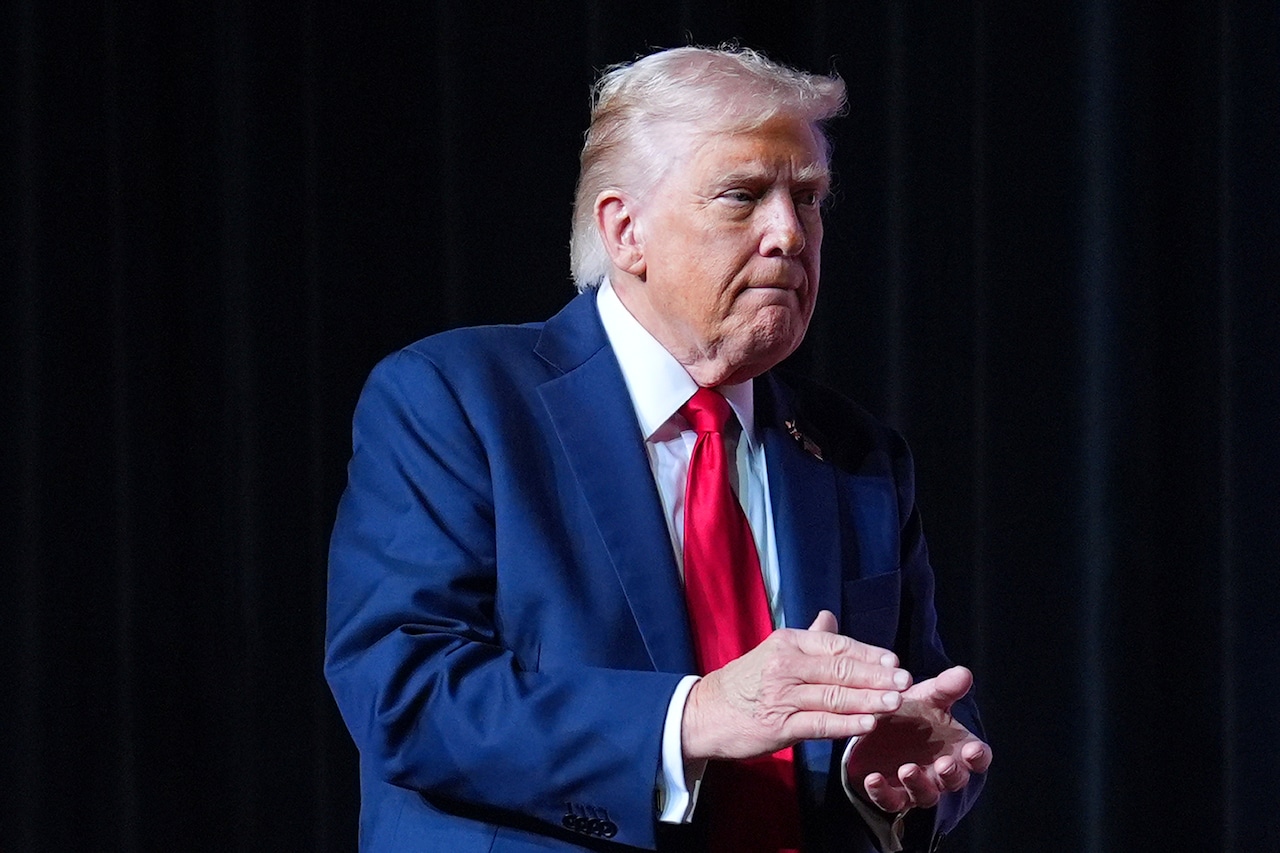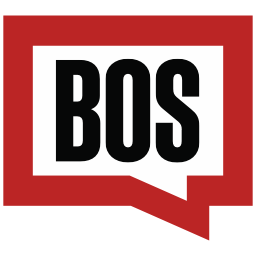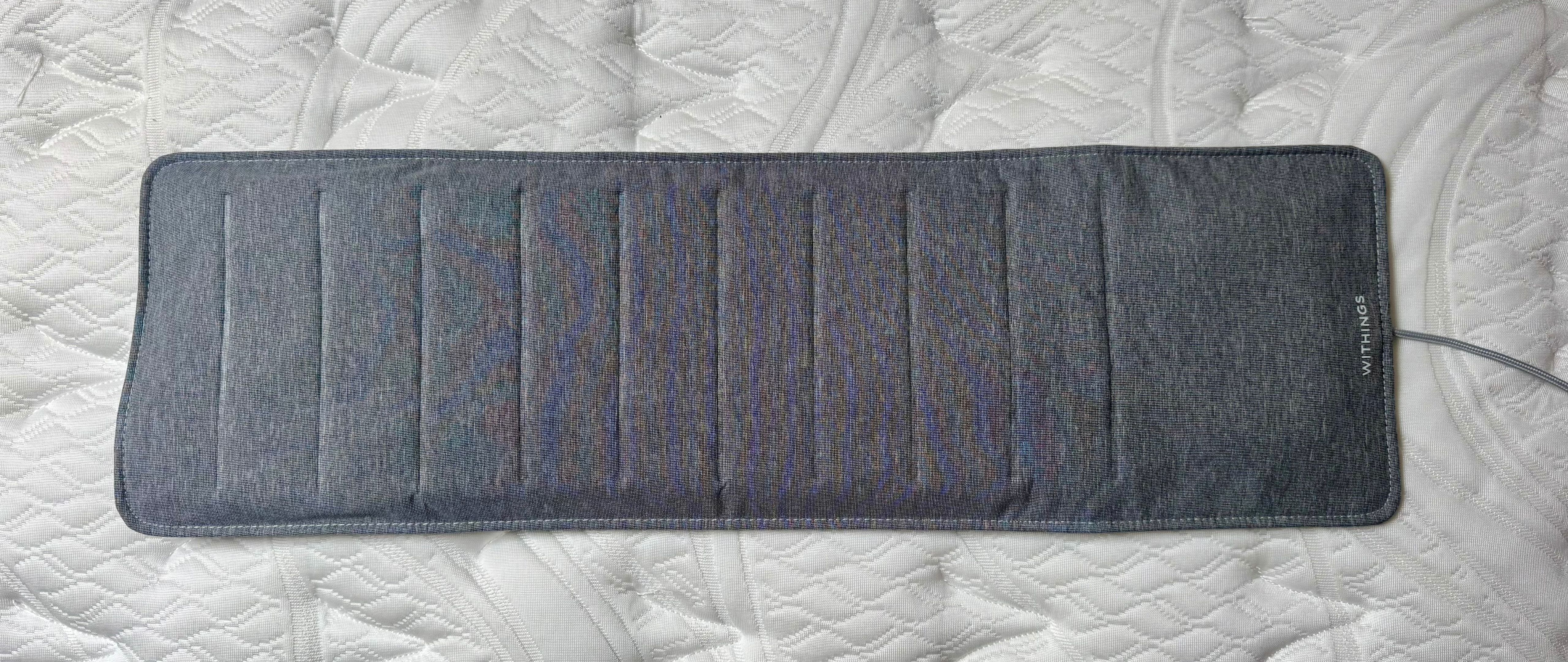
President Donald Trump’s new $100,000 fee for H-1B visa applications recently took effect.
Dozens of Michigan companies hire H-1B visa holders, with auto industry giants Ford and General Motors topping the list. They could now face hefty fees.
The H-1B visa program, the latest to be scrutinized by the second-term Republican president, was created to bring temporary, highly-skilled workers into the U.S. to do jobs that tech companies find difficult to fill with U.S. citizens and permanent residents.
Critics on both sides of the aisle say the program is instead allowing some companies to pay lower wages to foreign workers with fewer labor protections.
Trump said in his Sept. 19 proclamation that H-1B visas are being “deliberately exploited to replace, rather than supplement, American workers.” The new fee took effect Sept. 21.
But in the days since the change, some others have expressed concern that the fee on new applications could be a blow to companies that rely on it and hurt the economy overall.
What is the H-1B program?
The H-1B program, created in 1990, was designed for employees to hire skilled foreign workers in specialty occupations.
People with a bachelor’s degree or higher can be hired on in fields where jobs are deemed hard to fill, especially science, technology, engineering and mathematics (STEM) roles.
There are 85,000 visas given out per year, historically doled out through a lottery system and divided between 65,000 regular visas and 20,000 slots for advanced degree holders.
The visas are high demand. For the 2026 fiscal year, the federal government has already received enough petitions to reach the cap.
Some positions – like in higher education and government research institutions – are exempt from the cap, however.
H-1B approvals are typically valid for three years, and may be extended for a maximum of six, unless an employer is sponsoring a worker for U.S. permanent residency.
California typically has the highest number of H-1B workers, with tech companies among those most frequently requesting the visas.
This year, Amazon was by far the top recipient of H-1B visas, with more than 10,000 awarded, followed by Tata Consultancy, Microsoft, Meta, Apple and Google.
But several Michigan-based companies are also requesting H-1B visas at a high volume.
Which Michigan companies use H-1B visas most?
During the 2025 fiscal year, Michigan had 1,364 employers submitting petitions to employ H-1B nonimmigrant workers, according to data tracked by U.S. Citizenship and Immigration Services.
A total of 8,240 beneficiaries were approved.
Nationwide, data has shown that the biggest recent gains in H-1B visa sponsorship were in consulting, technology and financial services firms.
But in Michigan, automakers were the two companies ranking in the top 50 employers nationwide for the use of the visas.
Ford Motor Company ranked 40th in the country with 649 visa approvals, while General Motors (GM) ranked 44th and had 574.
H-1B visa numbers for both Ford and GM have fluctuated over the last 10 years, with each company’s numbers peaking in 2022. But both have generally increased during that time.
Glenn Stevens Jr., executive director of MichAuto and chief automotive/innovation officer for the Detroit Regional Chamber, said automakers rely on H-1B visas due to the technology and research that goes into making vehicles, which are an increasingly high-tech consumer product.
“There’s a high degree of skilled workforce that is required to design and research and test and engineer and manufacture these vehicles,” he said.
“We need a constant flow of high-tech talent,” said Stevens, who works for the advocacy organization seeking to develop the state’s mobility industry.
The changes now “complicate things,” he said, at a time when Michigan is seeking to become more globally competitive, and when domestic talent isn’t yet plugging all the holes.
For the state to continue to grow, Stevens said it’s important to address “some very basic K-12 education system issues in the state, where our young people are not performing at the levels that will enable them for pathways to STEM careers.”
“Those systems have to be filled with people who grow up in Michigan, with a strong K-12 education and career pathways to get them into that pipeline,” he said.
But without those changes, proponents of the H-1B program say it brings in necessary talent.
In addition to automakers, Michigan’s higher education institutions are also historical users of the H-1B program.
In 2025, the University of Michigan was also among the top 100 companies in the nation for approvals, tying for 68th place with 383.
In a statement posted online, the university described the program as an “essential tool for maintaining global competitiveness.”
“The program allows us to attract and retain the world’s top talent—scholars, researchers, staff and faculty members—who drive innovation and advance knowledge in critical fields.”
The university said it is “assessing potential implications” of the recent Trump proclamation.
Stevens said the threat of losing research and engineering centers, “key to our state’s economy,” is also present.
“We have to be wary of a shortage of critical talent available through tools like H-1B potentially causing companies to offshore high technology research and product development,” he said.
Below is a searchable table with the top 100 Michigan employers receiving H-1B visa beneficiaries, according to federal data.
Other companies ranking in Michigan’s top 10 include FCA U.S., LLC, which is a subsidiary of another “Big Three” automaker known as Stellantis.
IT providers made up most of the rest of the top 10, including Troy-based IT company Atos Syntel.
Henry Ford Health System, Detroit-based Ally Bank, United Wholesale Mortage and Michigan State University are also organizations included on the list.
How does the $100K requirement work?
Previously, there was no set application fee paid by companies, with a visa typically costing around $10,000 in legal fees and administrative costs.
In his proclamation made Sept. 19, Trump announced that each new H-1B visa application would be accompanied by a $100,000 fee.
After some initial concerns, including visa holders cancelling scheduled trips out of fear they wouldn’t be allowed to return, his administration clarified that the fee would apply only to new petitions, not renewals, and that visa holders wouldn’t be blocked from returning to the U.S.
Trump’s announcement comes after continued calls to reform the program by labor advocates and politicians on both sides.
The program isn’t meant to displace U.S. workers, but some critics say companies pay less by classifying jobs at lower skill levels, even if the workers hired have more experience.
Previous reforms to the system have been made by USCIS, including limiting lottery entries to one per employee. Critics, like the AFL-CIO, welcomed that change but said more needs to be done.
Some of the president’s allies have called for the elimination of the program entirely. Steve Bannon, Trump’s chief strategist during his first term, is a longtime critic of the program, advocating for it to be stopped. He has repeatedly argued it takes high-paying jobs away from Americans.
Trump didn’t go that far. But he said last month that the program has led to a “large-scale replacement of American workers through systemic abuse.”
He honed in on IT firms he said outsource jobs to increase savings, making it more challenging for U.S. college graduates and risking American leadership in these fields.
Trump said the imposition of a $100,000 fee for each H-1B application will address abuses while still permitting companies to hire “the best of the best.”
The American Immigration Council disagreed. The advocacy group requested that the Trump administration focus on enforcement tools for those abusing the H-1B program and not penalizing all employers.
The Council said large, profitable employers can likely absorb the cost, but it could significantly hurt start-ups and small businesses and benefit foreign competitors.
Without an extension, the application fee will expire in September 2026, 12 months after it was enacted.
How are Michigan companies responding?
When asked to comment on the change, both Ford and General Motors declined.
Stevens said the initial days following the announcement have been sort of a wait and see, with bipartisan agreement that the program “needed some reform,” but many of the details/impacts not yet fully clear.
“There’s still a lot to play out,” he said, adding that, “I think we have to be careful not to overreact right now.”
But the announcement does raise some concerns about the talent pool automakers and tech startups rely on, Stevens said.
“These (visas), for the most part, are intended to fill very high degree, very specialized capabilities that are not readily available in our country,” he said.
If a global manufacturer based in the U.S. has to apply for visas to fill several thousand positions, $100,000 application fees are “going to drive your cost up,” he said.
“It’s probably going to tighten the supply chain for talent.”
Stevens said it could potentially impact the broader Michigan economy, especially when coupled with other Trump administration changes, like tariffs.
“We have been wrestling with quite a few changes in policy from the Trump administration this year,” Stevens said. “Now, we also anticipated that there would be a lot of change. So the change is not surprising. It’s really the magnitude and the velocity, the speed of the change that’s come at us.”
At the same time, Stevens said “it’s also kind of a wake-up call in some respects, because one of the things that the administration wants to do is they want to give more opportunity to Americans, and no one should argue that (isn’t) a good idea.”
“For us to be able to compete and for us to have that high-tech talent that the H-1B visa programs do fill, then we’re going to have to do a better job of educating, preparing and getting our people into these high tech careers,” he said.



